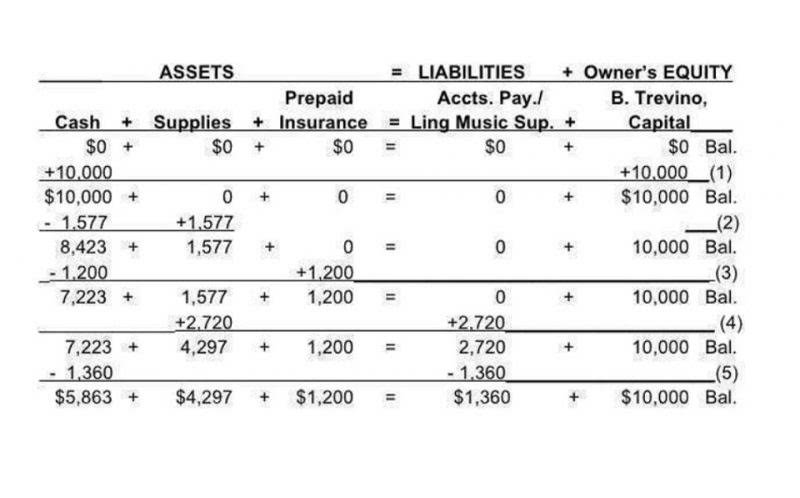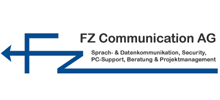
Conversely, significant influence can be present when voting power is lower than 20 percent, but only if it can be clearly demonstrated. Accounting is also needed to pay accurate taxes to the Internal Revenue Service (IRS). If the IRS ever conducts an audit on a company, it looks at a company’s accounting records and methods.
Accounting for Joint Venture Losses

However, this percentage can vary depending on the specific circumstances, such as the presence of other factors like board representation, contractual agreements, or other methods of exercising influence. The other side of the entry is not to dividend income but is a credit to the investment account in the Oil And Gas Accounting balance sheet. The equity accounting method is used if the reporting entity has a significant interest in another company but does not own it outright. For example, if an investor receives a $20,000 dividend, the investment’s carrying value decreases by that amount.
Initial Recognition
If the investor’s amount of adjustment to AOCI exceeds the equity investment value, the excess will be recorded to the income statement as a current period gain. Once the investor determines the type of investment and the applicable accounting treatment, it is time to record the equity investment. The equity method of accounting GAAP rules allow investors to record profits or losses in proportion to their ownership percentage.
Example of accounting recognition using the equity method of accounting
- The second entry reflects the actual receipt of the dividend and the related reduction in Little’s net assets.
- Under the equity method, companies must disclose additional details about equity method investments in the notes to the financial statements.
- He has been a manager and an auditor with Deloitte, a big 4 accountancy firm, and holds a degree from Loughborough University.
- So in summary, the equity method shows the investor’s share of the investee’s performance while the cost method does not.
- If the investee reports a net loss, the investor decreases the investment’s carrying amount and recognizes its share of the loss.
Equity accounting is a method of reporting the portion of a company’s income that is derived from its ownership interest in another company. Equity accounting treats the company’s share of the affiliate’s profits as returns on investment. This article discussed the fundamentals of the equity method accounting for investments. A comprehensive discussion of equity method accounting is beyond the scope of this article. The objective is to at least highlight some rudimentary issues related to this complex area of accounting. Readers may want to refer to the FASB and other accounting literature for a more comprehensive discussion.
- Initially, the investment is recorded at cost, encompassing both the purchase price and directly attributable transaction costs, such as legal fees or broker commissions.
- Furthermore, because the companies are not consolidated, the investee’s reported balances are not altered at all to reflect the nature of these sales/purchases.
- The equity accounting method reflects the investee’s profits and losses in the investors’ records.
- Conversely, if ownership decreases below the threshold for significant influence, or if influence is otherwise lost, the investment would typically transition to fair value accounting.
- Once again, a parallel is established between the investment account and the underlying activities of the investee.
Equity Method Goodwill

It is known as the “equity pick-up.” Dividends paid out by the investee are deducted from the account. Unlike with the consolidation method, in using the equity method there is no consolidation and elimination process. Instead, the investor will report its proportionate share of the investee’s equity as an investment (at cost). Exist significant influence occurs when an entity has the power to intervene in an investee’s financial and operating policy decisions without actually having control.

This means a purchase order is recorded as revenue even though the funds are not received immediately. The same goes for expenses in that they are recorded even though no payment has been made. This is because switching between methods would potentially allow a company to manipulate revenue to minimize its tax burdens. Companies may use a hybrid of the two methods, which is allowable under IRS rules if specified requirements are met.
When Company A (the investor) has significant influence over Company B (the investee)—but not majority voting power—Company A accounts for its investment in Company B using the equity method of accounting. Company B is considered an unconsolidated subsidiary of Company A in such circumstances, from Company A’s perspective, but could be a freestanding, publicly traded corporation. A company is generally considered to have significant influence, but not control, when it owns 20% – 50% of the voting interest in the unconsolidated subsidiary. The company does not actually record the subsidiary’s assets and liabilities on its balance sheet.

If the fair value of an equity method investment falls below its carrying amount, and this decline is considered other-than-temporary, the investor must recognize an impairment loss. This loss reduces the investment’s carrying value on the balance sheet to its fair value and is recognized in the investor’s income statement. The assessment of whether a decline is “other-than-temporary” requires careful judgment based on available evidence. One critique of the equity accounting method is that it does not provide usable insights to investors looking forward. Under the equity method, the carrying value of the investment is periodically adjusted to reflect the investor’s https://transbrax.com.br/2023/11/15/best-accounting-software-for-small-businesses-2/ share of the investee’s earnings or losses.
Equity Method of Accounting for Investments
The cost of an equity method investment includes the amount paid for the investee’s stock as well as any direct costs related to acquiring the investment. The equity method carrying amount on the balance sheet is adjusted each period to reflect the investor’s share what is the equity method of accounting of income or losses and any distributions received. So in essence, under the equity method, the investor is recording their share of the profits or losses of the investee company. This gives a more accurate picture of the investor’s income compared to other methods like the cost method. The equity method of accounting is an accounting technique used by investors to account for investments in which they have significant influence over the investee company but do not fully control it. The equity method is an important accounting technique used by companies to reflect their investment in other entities.

